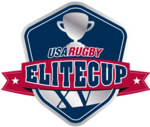
The United Rugby Championship (URC) is an annual rugby union competition involving professional teams from Ireland, Italy, Scotland, South Africa, and Wales. For sponsorship reasons the league is known as the Vodacom United Rugby Championship in South Africa, and the BKT United Rugby Championship in the competition's other territories, the split branding mirroring the format previously adopted in Super Rugby. The Championship represents the highest level of domestic club or franchise rugby in each of its constituent countries.
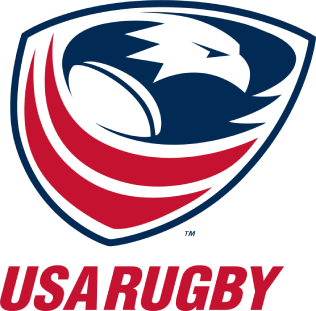
The United States men's national rugby union team, nicknamed the Eagles, represents the United States of America Rugby Football Union in men's international rugby union. USA Rugby is the national governing body for the sport of rugby union in the United States, and is a member of Rugby Americas North, one of six regional governing bodies under World Rugby. Until rugby returned to Olympic competition, with sevens at the 2016 Rio Games, the United States was the reigning Olympic rugby champion, having won gold at the 1920 and 1924 Summer Olympics.
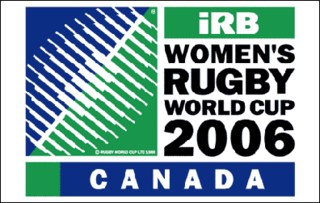
The 2006 Women's Rugby World Cup took place in Edmonton, Alberta, Canada. The tournament began on 31 August and ended on 17 September 2006. The 2006 tournament was the third World Cup approved by the IRB, the previous two being held 2002 in Spain and in the Netherlands, in 1998. The Black Ferns of New Zealand won the 2006 World Cup, defeating England in the final, as they had in 2002. It was New Zealand's third successive title.
The USA Rugby Super League, usually known as the Super League or RSL, was a national rugby union competition which ran from 1997 to 2012, contested by nine clubs in the United States by its last year. In the 2013 season, it was replaced by the USA Rugby Elite Cup.
The 2010 Women's Rugby World Cup was the sixth edition of the Women's Rugby World Cup and was held in England. The International Rugby Board Executive Committee selected the host union following a recommendation from the Rugby World Cup Limited board after considering bids from the Rugby Football Union and the German Rugby Union – it had been England's third successive bid after being rejected in 2002 and 2006. The tournament was again being organised by the International Rugby Board (IRB) as opposed to the host union, and included five matches for all teams played on 20, 24, 28 August and 1 and 5 September. In May 2009 it was announced that the semi-final, 3rd place play off and final would take place at The Stoop and not Twickenham as had previously been suggested. Pool games were held at the Surrey Sports Park in Guildford.
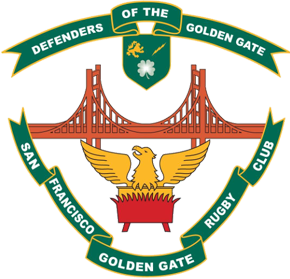
San Francisco Golden Gate Rugby Football Club is a rugby union club based in San Francisco, California. SFGG's first side competes in the Northern California Rugby Football Union's Men's Division I, Women's Division II, and Pacific Rugby Premiership. The SFGG Youth Program includes high school Varsity, Junior Varsity, Frosh-Soph teams as well as U-12, U-10 and U-8 (non-contact) youth teams. SFGG also fields nationally competitive Rugby Sevens squads over the summer. The SFGG Old Boys team, the Señors, feature in occasional matches.
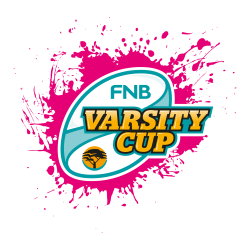
Varsity Cup is the collective name for four South African rugby union competitions involving the top rugby playing universities in the country. It was launched in 2008, with eight teams participating in the Varsity Cup competition and each university's internal champions competing in the Koshuis Rugby Championships. In 2011, a second tier competition called the Varsity Shield was added, increasing the number of participating universities to thirteen. A Young Guns tournament for the Under-20 side of the Varsity Cup teams was launched in 2012. A further expansion for the 2017 season saw three additional universities added to the Varsity Shield, totaling sixteen teams.
The 2009–10 LV Cup was the 39th season of England's national rugby union cup competition, and the fifth to follow the Anglo-Welsh format.
The 2010–11 LV Cup was the 40th season of England's national rugby union cup competition, and the sixth to follow the Anglo-Welsh format.
The 2013 Varsity Cup was contested from 4 February to 8 April 2013. The tournament was the sixth season of the Varsity Cup, an annual inter-university rugby union competition featuring eight South African universities.

The Yokohama Canon Eagles is a Japanese rugby union team founded in 1981 that competes in the Japan Rugby League One and is owned by Canon. The team was previously based in Machida, Tokyo, Japan. According to the official website, it was founded as Canon Rugby Team in 1980, and determined the nickname Eagles in 2010. The team moved to Yokohama ahead of the rebranding of the Top League in 2022, becoming the Yokohama Canon Eagles.
The 2012–13 LV Cup is the 42nd season of England's national rugby union cup competition, and the eighth to follow the Anglo-Welsh format.

The European Rugby Champions Cup is an annual rugby union tournament organised by European Professional Club Rugby (EPCR). It is the top-tier competition for clubs who compete in a predominantly European league. Clubs qualify for the Champions Cup via their final positions in their respective national/regional leagues or via winning the second-tier Challenge Cup; those that do not qualify are instead eligible to compete in the second-tier Challenge Cup.
The 2014–15 European Rugby Champions Cup was the first season of the European Rugby Champions Cup, the annual rugby union club competition for teams from the top six nations in European rugby, and the 20th season of professional European rugby union in total. It replaced the Heineken Cup as Europe's top-tier competition for rugby clubs. The competition got underway on the weekend of 17 October 2014 with the first round of the pool stage, and ended with the final on 2 May 2015 at Twickenham Stadium, London, England.

The EPCR Challenge Cup is an annual rugby union competition organised by European Professional Club Rugby (EPCR). It is the second-tier competition for clubs based in European leagues behind the European Rugby Champions Cup. From its inception in 1996 to 2014, it was known as the European Challenge Cup and governed by European Rugby Cup (ERC). Following disagreements in the structure of the tournament's format and division of revenue, the English and French leagues withdrew to form the EPCR, which organized the Challenge Cup and the Champions Cup since the 2014–15 season.
The 2014–15 European Rugby Challenge Cup was the first season of the European Rugby Challenge Cup, the annual rugby union competition. It is the 19th season of second tier pan-European club competition in general, as the competition replaces the European Challenge Cup. The competition began with the first round of the group stage, on the weekend of 16 October 2014, and ended with the final on 1 May 2015 at the Twickenham Stoop.
The 2015–16 European Rugby Challenge Cup was the second edition of the European Rugby Challenge Cup, an annual pan-European rugby union competition for professional clubs. It is also the 20th season of the Challenge Cup competition in all forms, following on from the now defunct European Challenge Cup. Due to the 2015 Rugby World Cup taking place during September and October 2015, the competition began slightly later than usual, with the first round of the group stage, on the weekend of 12/13/14/15 November 2015, and ended with the final on 13 May 2016 in Lyon.
The 2015–16 European Rugby Champions Cup was the second European Rugby Champions Cup championship, the annual rugby union club competition for teams from the top six nations in European rugby. The European Rugby Champions Cup replaced the Heineken Cup, which was Europe's top-tier competition for rugby clubs for the first nineteen years of professional European rugby union.
The 2016–17 European Rugby Challenge Cup was the third edition of the European Rugby Challenge Cup, an annual second-tier rugby union competition for professional clubs. Clubs from six European nations plus one Russian club competed. It was also the 21st season of the Challenge Cup competition in all forms, following on from the now defunct European Challenge Cup.
The 2017–18 European Rugby Challenge Cup was the fourth edition of the European Rugby Challenge Cup, an annual second-tier rugby union competition for professional clubs. It was also the 22nd season of the Challenge Cup competition in all forms, following on from the now defunct European Challenge Cup. Clubs from six European nations plus two Russian club competed for the title.
